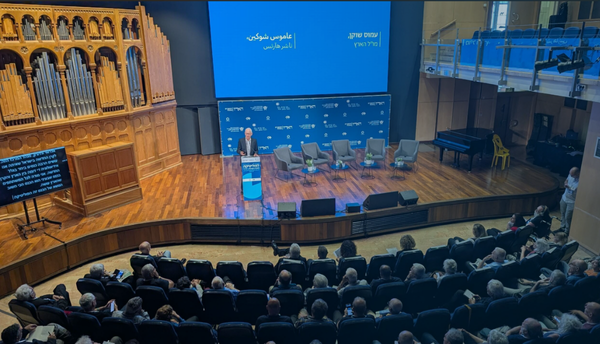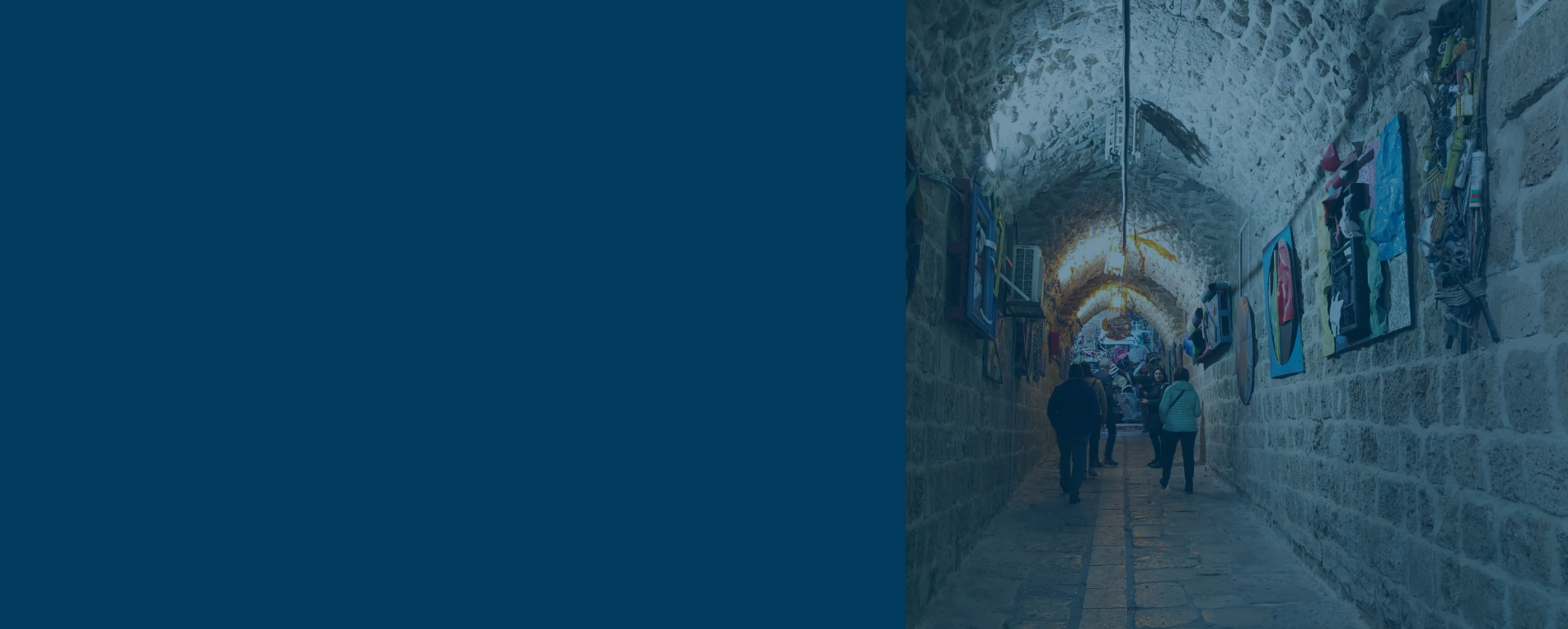The Third Haifa Conference on Arab Society and Politics
The 3d Haifa Conference on Politics and Arab Society was held on May 13th at the University of Haifa. Co-organized by Haaretz newspaper, the New Israel Fund, the Jewish-Arab Center at the University of Haifa, Qadaya Organization, and the Aman Center, the conference brought together Members of Knesset, civil society leaders, and academics—most of them Arab citizens of Israel—to assess the state of Arab political engagement ahead of the next national elections, scheduled for October 2026.
University President Prof. Gur Alroey opened the conference focusing on the importance of Arab participation in the upcoming elections: “Changing the reality is possible only at the ballot boxes… Definitely, as much as academic conferences are important, they are not driving the change… The next elections will be the watershed moment for Israeli society, for Jews and Arabs together.”
While discussions addressed party configurations, voter turnout, and growing concerns over potential electoral disqualifications of Arab-led lists, the most focus centered on the need for a compelling political vision and the frayed state of Arab-Jewish relations—issues described as central to restoring public trust and meaningful engagement.
Arab-Jewish Partnership in the Aftermath of October 7
Throughout the conference, speakers echoed the idea that Arab-Jewish partnership is both urgent and essential for preserving democracy and ensuring shared security, while acknowledging the challenges and complexity of engaging the Arab public when trust and Jewish-Arab relations are deeply strained.
“The only way to save our precious homeland is a courageous political partnership between the democratic camp and the Arab parties,” said Dr. Nasreen Hadad Haj-Yahya, Vice President of the New Israel Fund. “Leaders of the blocs opposing Netanyahu’s government must have the courage to say this out loud… because democracy is measured, first and foremost, by its treatment of minorities… This is something Jewish people know better than any other nation in history. We need brave leadership with a clear stance: No Arabs – no democracy.”
MK Naama Lazimi of the Labor Party echoed this call: “Coexistence is about real mutual recognition of rights, not about cynical talk of ‘unity.’ Arab-Jewish relations have reached an unprecedented low.”
Kholod Idres, co-director of the Shared Society Department at Sikkuy-Aufoq, highlighted the difficulty amid erosion of Arab citizens’ identity and rights under the current government: “Since the fall of the government of change, there has been a deliberate attack on the identity security of Arab citizens… Arab teachers cannot talk about their identity. Doctors are reprimanded for speaking Arabic. Administrators are punished for organizing Nakba memorials… The state is working through persecution, silencing and illegal arrests—and it is working. It is affecting Arab society, which is drawing in on itself.”
Arab MKs in attendance—including Mansour Abbas, Ayman Odeh, Ahmad Tibi, and others—expressed cautious optimism about Arab citizens’ renewed interest in making their voices heard at the ballot box. They pointed to strong public support for replacing the current coalition, which many in Arab society view as having neglected—if not actively targeted—their rights and identity.
The University of Haifa had canceled a joint political event organized by Arab and Jewish students. Like many speakers at the conference Amjad Shbita, Secretary-General of Hadash, referenced the cancellation, remarking that “You can’t silence the Arab voice and then scold it for not voting.“
Political Leadership and Vision
One of the key takeaways from the conference was the need for a compelling political vision that resonates with the Arab public, and a troubling vacuum in leadership—local, civic, and national. As activist Rula Daoud, Executive Director of the joint Jewish-Arab movement Standing Together, observed: “What is really missing is a vision that leaders can put on the table, to say, ‘This is what we offer, come with us.’ We can’t order a dish if it’s not on the menu. People won’t vote without being offered what they’re looking for.”
This absence of vision has contributed to widespread political disengagement, particularly among young voters. Yousef Taha of Balad articulated a deep sense of frustration felt by Arab youth: “Young Arab citizens have lost trust in politics and politicians… Yes, we need internal reckoning within the Arab parties, but we also live in a state that does not treat us as equal citizens… Thousands of young Palestinians are seeking to leave the country and live abroad.” Former MK Sundus Saleh (Joint List) emphasized the need to reconnect with younger generations: “We must engage in introspection and build a new political project that speaks directly to the youth.” He added that while the Joint List may help restore trust, it is “only one tool”—not a complete solution.
How Can We Help?
Do you need support integrating these resources and issues into your philanthropic, communal, or Israel education work? Reach out for consultations, connections to experts, program support, training, or to plan your next event or mission. If you’ve used our resources, tell us about your experience!


